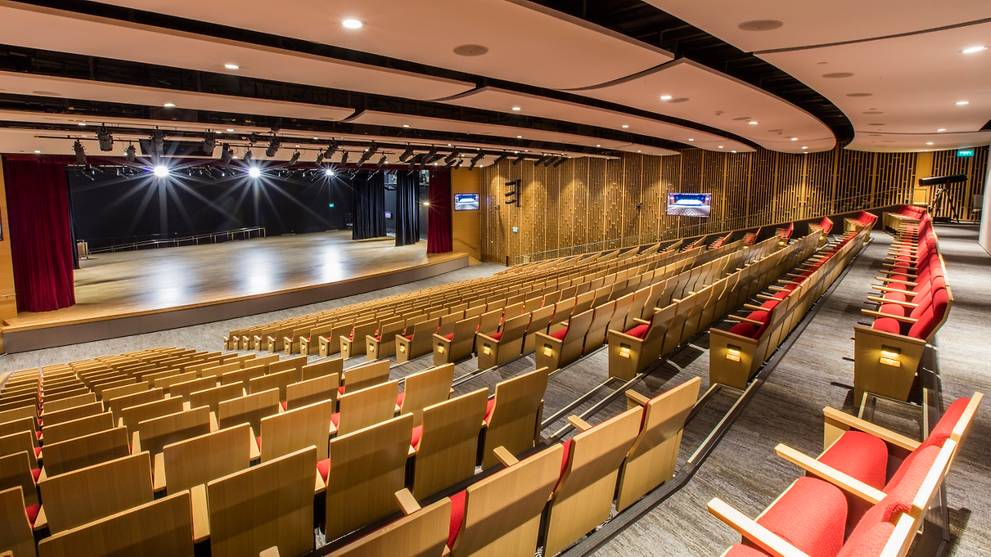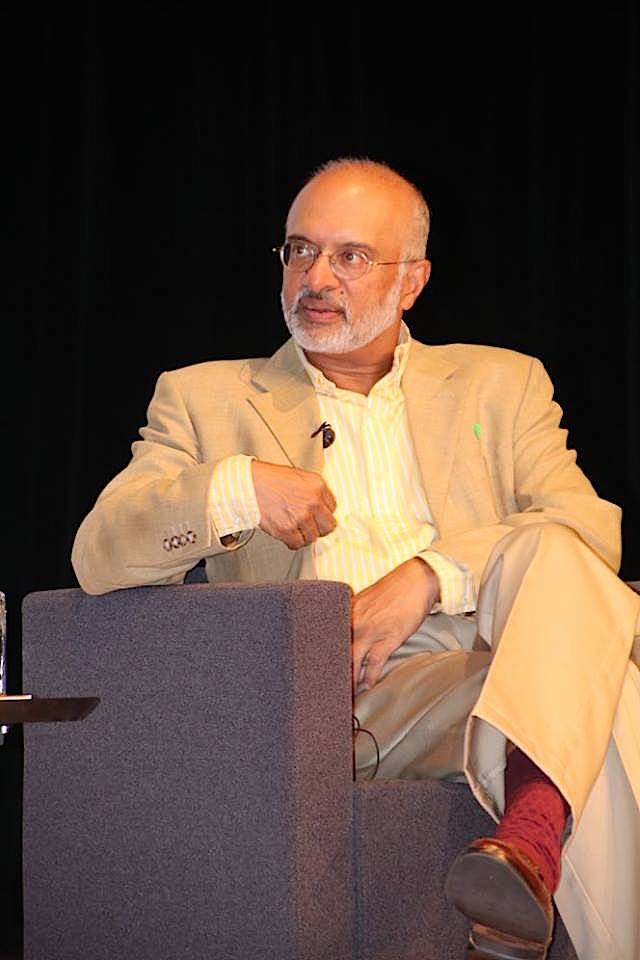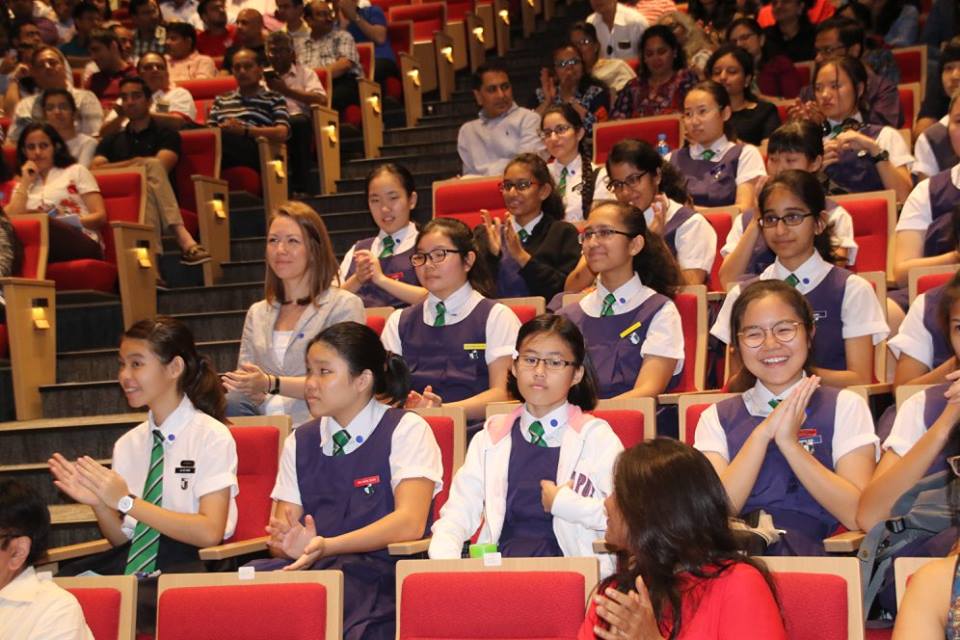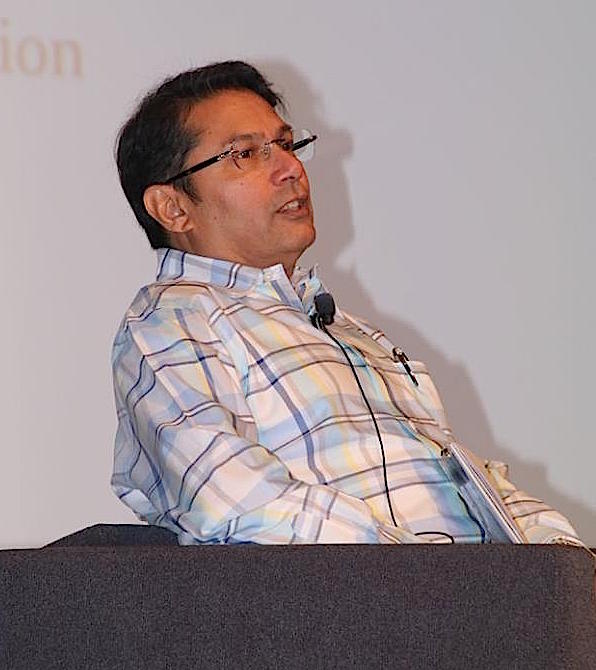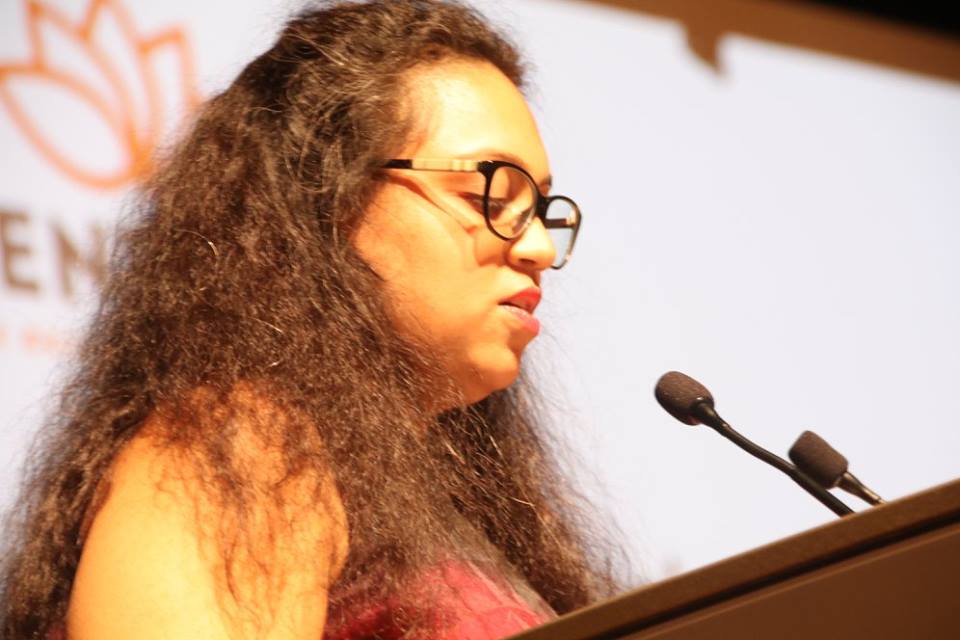Singapore Gujarati Society (SGS) hit it out of the park with its debut MentPro LIVE: Leaders’ Series talk involving Piyush Gupta Chief Executive Officer (CEO) and Director of DBS Group who was interviewed on stage by the erudite Managing Partner of Jungle Ventures Jayesh Parekh.
The Sunday morning experience was an amazing blend of Gujarati hospitality with first world execution, hosted at the newly minted Singapore Chinese Cultural Centre (SCCC), which was inaugurated as recently as May 19 by Prime Minister Lee Hsien Loong.
Piyush’s replies were refreshingly honest and highly relatable. His examples very personal and counsel very clear. It appeared that almost everyone got something valuable and everyone left inspired. Funny thing about advice is that some people get it crystal clear and others in the same room interpret it incorrectly.
One famous Gujarati man had once advised his sons to make sure that their company should serve 20 per cent of Indian population at any point in time. His older son recently launched probably the most disruptive mobile offer through his company Jio in a market, which can be called saturated and fertile at the same time, and the number people who will engage with his company are very likely going to be more than 20 per cent. Yet again.
Piyush’s advice to the group that morning was pretty powerful too. A combination of acquiring skills, networking, working hard, leadership skills, being adaptive to cultures and often practiced but never spoken so openly “coat-tailing.”
As a mid-level manager there is nothing wrong in holding onto a coat tail of a smart and successful senior colleague.
Talking about networking Piyush clarifies, “A lot of people just think that networking is exchanging name cards and shaking hands. I get thousands of cards from people who come and shake my hands every day, but that doesn’t mean anything at the end of the day,”
“It is about being thoughtful about who are the people relevant to you. At the same time, you cannot expect people to be helpful to you unless you figure out how you can be relevant to someone. Networking has to be a two-way thing,” he adds.
His career planning tip included working backwards from where you aspire to reach in your career. “You got to have a sense of what you aspire to be, and then from there you work backwards. For instance, if you want to be a CEO at 50 years old, then think about what are the kind of jobs that you ought to be doing when you are 40 or 45 years?”
Piyush also shared his experience and learning from the time when he had moved to Singapore in 1991 as the Chief of Staff to the Asia Head of Citibank. He pointed out that the most valuable lesson one can learn from geographic re-locational experiences, is how people of different communities behave differently. “If you understand the nuances of how people think, you can get things done more effectively.”
He went to cite the example of how, in India, people are very direct about the way they speak. “Indians speak loudly, have face-offs and confrontations. But at the end of the evening, all of this is forgotten and we just go out for a drink.”
But in Singapore, “You cannot have loud face-offs and confrontations, particularly with the Chinese people, for whom there is the massive issue of face. This means you just have to make the same points in a very different way.”
The question is therefore, how do you deal with culture differences, and get the same outcome in the way that is acceptable to the nuances of the local community? “The thing is, cultures take a long time to change – they can be changed but not overnight. In the meantime, you just have to accept that this is the culture of the location and you adapt to it,” said Piyush.
He responded to Parekh’s question on – what were the aspects of Singapore that he appreciated.
“I do think that what the first generation in Singapore—I’m referring to leaders like Lee Kuan Yew—did was just extraordinary. The first thing I appreciate about Singapore is the capacity to take bold steps. Singapore’s strategy for the first 50 years is about making a world class infrastructure in a third world region. It is easy to talk about it when you are looking back, but when you are at that point in time, how do you go about creating a first world infrastructure and bringing in the multi-national corporations and companies?”
Alluding to Singaporean work ethic and the integrity Gupta said, “What Lee Kuan Yew did in the late 1960s and the 1970s in a very firm way is to kill the idea of corruption in Singapore, and creating a work ethic and oneness of purpose.”
He is therefore encouraged in some ways about what Prime Minister Modi is doing in India, “You get to a state where the soft infrastructure becomes more important than the hard infrastructure and this happens in many countries.”
Last but not least, the capacity of Singapore to execute plans and blueprints is actually pretty unique. “A lot of countries have 10 year plans, or 20 year plans, but very few countries will get them done. But Singapore has the capacity to define how human being and mankind needs to live in the next 20 years, but few countries can do that,” Gupta concluded.
Talking about the MentPro initiative Mansi Maheshwari, Programme Director, SGS MentPro, said,
"Started in 2012 by the Singapore Gujarati Society, MentPro is an empowering and experience-sharing platform for people at every stage of their career journey. We enhanced the SGS MentPro strategy last year with ‘live’ interactive sessions and workshops, in order to benefit from a larger network of experts in Singapore, and are encouraged by the interest that we have received. Despite its relative infancy, the initiative has had a considerable impact on its participants – varying from more informed career choices to enhanced skill sets.”

